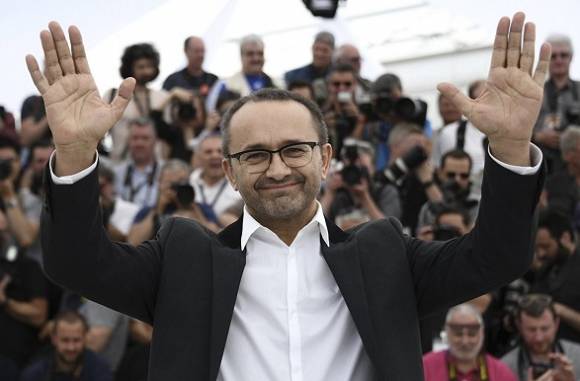Modern Russian cinema’s acclaimed director Andrey Zvyagintsev’s award-winning films and his latest film “Loveless” which won the Jury Award at the 2017 Cannes Film Festival will be screened at the 7th Malatya International Film Festival.
Award-winning director Andrey Zvyagintsev’s films focusing on rulership and human relations will meet the cinemagoers at the festival. The director has carried out Russia’s impressive cinema tradition to the 2000s, pioneering the new generation of Russian filmmakers. His films “The Return”, “The Banishment”, “Elena”, “Leviathan” and “Loveless” will be screened at the 7th Malatya International Film Festival.
His first feature film The Return (2003) had its world premiere at the 60th Venice Film Festival, making a tremendous impression worldwide, and won five awards including the Golden Lion. Zvyagintsev impressed the European cinema as a director pursuing and revamping the great Russian director Andrei Tarkovsky’s film style. His films focus on the effects of government and religion concepts on people as a result of the changing doctrine. As a director who has witnessed today’s Russia in the past 15 years, Zvyagintsev is famous for his elegant film language and aesthetics, as well as his social criticism.
Award-winning “Loveless” to be screened at the festival
Zvyagintsev’s latest film “Loveless”, which won the Jury Award at this year’s Cannes Film Festival, will also be screened at the festival. The film brings to mind the opening line of the great Russian author Tolstoy’s Anna Karenina: “All happy families are alike; each unhappy family is unhappy in its own way.” The film tells the story of a couple going through a divorce, who want to give up their son in order to enjoy a new life with their new partners. However, the disappearance of little Alyosha lead them to team up, and look for him with the volunteers and the police. The film provides an insight into Russia’s recent history and social structure through a series of metaphors.
Zvyagintsev’s internationally acclaimed debut film The Return (2003) is part mystical tale, part eerie family drama. The story concerns a father who suddenly returns home after vanishing 12 years earlier, and takes his two sons to an island in the lake they live by, while his mystery remains unresolved. The film is a visual feast with its extraordinary imagery inspired by painting, and the references to Tarkovsky.
The director’s second film The Banishment (2007) competed at the 60th Cannes Film Festival, and gained Konstantin Lavronenko the Best Actor Award for his role as the father. The visually stunning film is a loose adaptation of The Laughing Matter, a novel by William Saroyan, an extremely disturbing family drama on deception and revenge.
Elena (2011) won the Jury Award at the Cannes Film Festival’s Un Certain Regard section, and gained the director a wider audience. The film addresses the human soul and people’s soft spots universally, while manifesting the ever-growing gap between the rich and the poor in Russia. The story concerns the struggle of a poor woman who marries a rich man and becomes his maid in order to protect her family.
Leviathan (2014) made a big international splash, winning the Best Screenplay Award at the 67th Cannes Film Festival and the Best Foreign Language Film award at the 72nd Golden Globe Awards, and was nominated for the Best Foreign Language Film at the 88th Academy Awards. In Leviathan, Zvyagintsev satirizes the coalition of the political power and the church through a property case which stands in stark contrast to the country’s communist past. Likened to “church government” by the 17th-century philosopher Thomas Hobbes, Leviathan is an invincible sea monster referenced in the 41st chapter of the Book of Job, and sometimes depicted as a whale. The visually stunning film tells the story of Nikolay, who tries to save his ancestral home located in a town harboring a whale skeleton from confiscation, in the wittiest way possible.




















